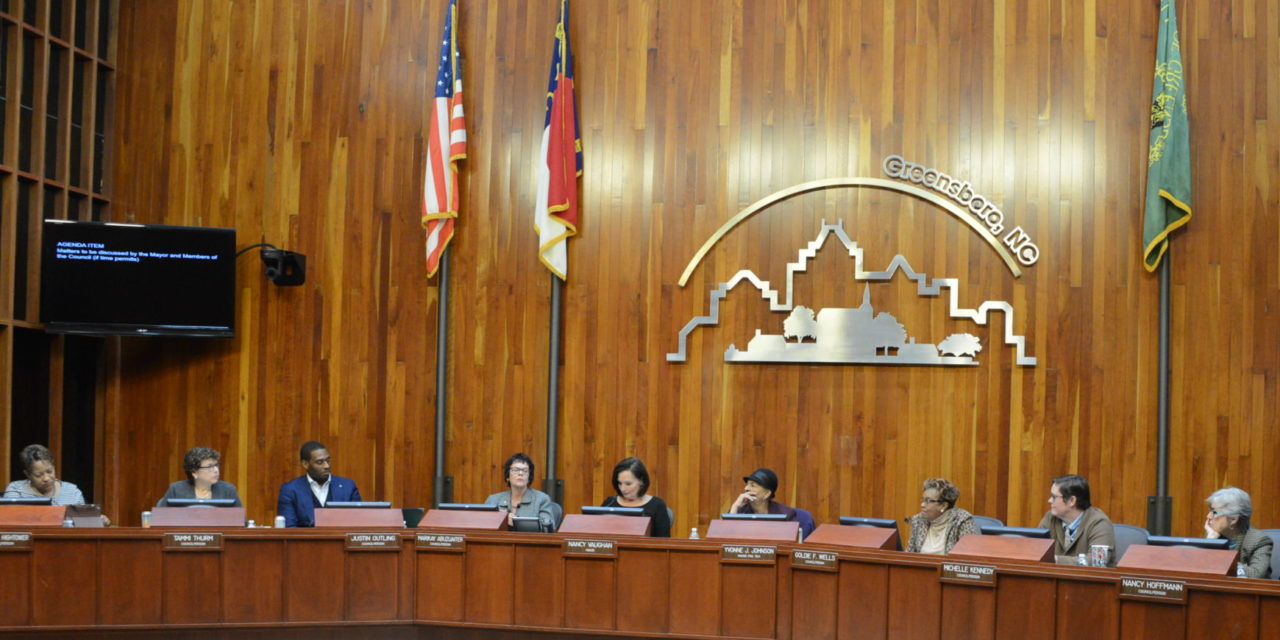The Greensboro City Council held its last town hall meeting Tuesday, Dec. 3, where the policy is not to conduct any meaningful business – but not conducting business doesn’t mean that ideas can’t be tested for future action.
City Councilmember Michelle Kennedy, with the support of Mayor Nancy Vaughan, spent considerable time laying the groundwork for putting a large affordable housing bond on the ballot. No timeline was mentioned and it’s too late to prepare a bond package for the 2020 March 3 primary.
However, there’s plenty of time to get a bond on the ballot for the Nov. 3, 2020 general election.
Vaughan talked about how difficult it was in 2016 to get the $25 million affordable housing bond on the ballot and then get it passed by the voters. Vaughan noted that the vote to put the housing bond on the ballot was 4-3.
She said, “It wasn’t necessarily the bond we wanted to pass; it was the bond that we could get through council.”
She added, “We worked as much as we could to get what we did.”
Councilmember Sharon Hightower said that she was opposed to the $25 million bond because she wanted a $35 million bond.
Kennedy talked about how that housing bond passed in 2016 was not for the type of housing that Greensboro needed, which was for those on “the lowest economic rung.” She said the only way to solve the homeless problem was by building housing for those now sleeping on the streets.
Vaughan also talked about the fact that Durham just passed a $95 million affordable housing bond.
Councilmember Justin Outling noted that although bond supporters made statements about how the bonds would be spent, the City Council was only bound by the language on the ballot, which usually allowed “a great deal of flexibility” and that plenty of times a bond had been passed for one purpose and spent on another.


Another spending boondoggle against the taxpayer. It’s bound to run at a loss, inasmuch business would build it themselves if they thought they could make a profit.
Unfortunately, homeless people cannot afford “affordable housing” of any kind. Furthermore, many do not want to live in conventional housing. If we are going to try and solve the homeless problem, building “affordable housing” is not the solution. We must solve the actual reasons these people are on the street including drug and alcohol addiction plus mental health issues. This type of proposal is just the opposite of “if you build it, we will come” presented in the movies.